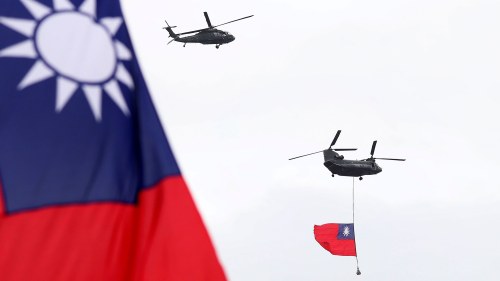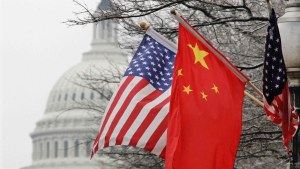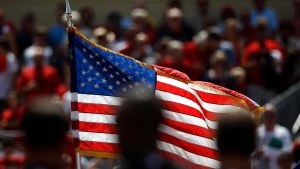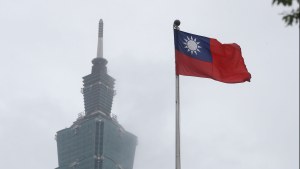AAPI Views on the US-Taiwan Security Relationship

Asian Americans are far more likely to support US intervention on behalf of Taipei in the case of a Chinese invasion.
For over 70 years, the Republic of China on Taiwan (or ROC) has been governed separately from the mainland People’s Republic of China (PRC). While the PRC claims the island as part of its territory, Taiwan maintains that it is a sovereign nation with its own democratically elected government. Since the normalization of US-PRC relations in 1979, the United States has maintained a close but unofficial relationship with Taipei. As relations between the United States and the PRC deteriorated in the late 2010s, with Washington embracing “strategic competition” with China as a guiding principle for US foreign policy, the status of Taiwan has loomed ever larger in US foreign policy thinking.
Analysis of 2023 Chicago Council Survey data shows that racial and ethnic groups in the United States tend to have specific and different focuses as they think about US foreign policy and emphasize somewhat different issues as priorities. For Asian Americans, Taiwan is one of those priority issues. As such, they are more supportive than other Americans of aiding Taiwan in a crisis, including sending the US military to aid Taipei in its defense.
Americans Broadly View US-Taiwan Relations as Good for US National Security
Taiwan may be on Americans’ minds more now than in the past, as high-profile visits by US representatives in recent years have made headlines around the world. Today, Americans overall view the US-Taiwan relationship as beneficial to US security: two-thirds overall (65%) say the US-Taiwan security relationship strengthens US national security. Asian Americans are even more positive, with three-quarters (74%) saying US-Taiwan relations are good for US security.
This positive view of US-Taiwan security relations among Asian Americans carries over into how they would want the United States to respond to a potential invasion of Taiwan by the PRC.
Americans widely look most favorably on responses to such an invasion that aid the Taiwanese while minimizing the overall impact or burden on the United States. This falls in line with the positive view of the security relationship between the United States and Taiwan and with recent data on American opinions on intervention in international conflicts, such as the war in Ukraine. As in the case of Ukraine, Americans broadly support aiding Taiwan should it be invaded by China. A majority of the public favors sending Taiwan food and medical aid (78%) as well as supplying Taiwan with arms and other military equipment (61%), and three-quarters would support imposing sanctions on China (73%). But more direct involvement is less popular: only half (51%) support the use of the US Navy to break a Chinese blockade, and only four in 10 Americans (40%) would support sending US troops to Taiwan itself.
Asian Americans, however, take a markedly different stance on some of the more direct interventions. Two-thirds of Asian Americans (64%) say they would support the use of the US Navy to break a Chinese blockade around Taiwan, 13 points higher than Americans overall. And most strikingly, Asian Americans are the only group for whom a majority (53%) supports sending US troops to help the Taiwanese government against a Chinese invention, again 13 percentage points higher than the general public.
Conclusion
Overall, there is agreement on the necessity of US involvement if China were to invade Taiwan, though opinions differ on exactly what that involvement should look like. Across racial groups, Asian Americans ally the most with action against China in case of an invasion of Taiwan, though White Americans are close behind. As views on China and on global American interventionism remain in flux, these perspectives may change in coming years, but as they stand now, most Americans would prefer a response that aids the Taiwanese in their efforts but minimizes the impact on American troops and way of life.




Related Content
 Public Opinion
Public Opinion
Asian Americans are less likely than other racial or ethnic groups to say China’s rise is a “critical” threat to the United States.
 Public Opinion
Public Opinion
The Council partnered with New America to explore how Americans across backgrounds view key issues facing the world today.
 Public Opinion
Public Opinion
But a majority oppose sending US troops if China were to invade the island.


